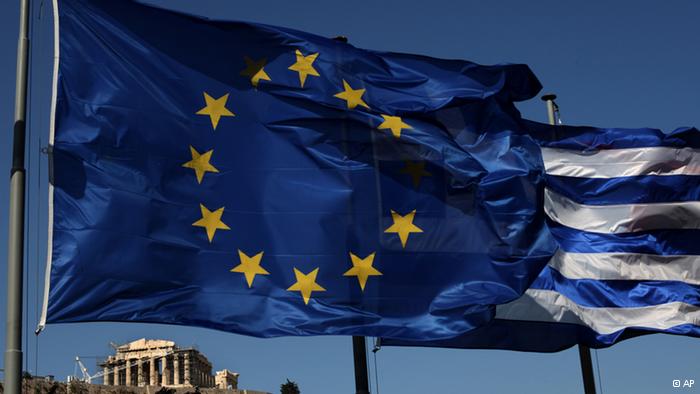By Sara Sjolin, Market Watch
LONDON (MarketWatch)—Jitters over Greece have accelerated in recent days, with investors growing increasingly concerned about how debt negotiations between the new government and the troika of international lenders will proceed.
Days have been action-packed since the general election on Sunday—a new cabinet sworn in, privatization plans put on hold and Greece supposedly seeking Russia’s support—but we’re not nearly done with events that could determine Greece’s future in the eurozone.
Here are the five key events to monitor over the next few weeks.
Friday: Debt negotiations begin. Eurogroup head Jeroen Dijsselbloem visits Athens to meet new Prime Minister Alexis Tsipras and his Finance Minister Yanis Varoufakis to discuss possible changes in the conditions of Greece’s bailout. Varoufakis has already warned that the negotiations with the creditors won’t be easy. Dijsselbloem is expected to emphasize that Europe won’t accept a haircut on Greece’s debt. A news conference is planned after the meeting.
Feb. 4: ECB non-monetary policy meeting, where the governing council will discuss the use of its emergency liquidity assistance (ELA) to Greek banks. The central bank reviews the ELA every two weeks and after the ECB approved an emergency funding line for Greek banks last week, the program is up for review again. With a potential for capital flight in Greece, funding needs for Greek banks are likely to stay an issue.
Feb. 5: The Greek parliament formally opens, the starting point for new legislation. Over the following days, the Syriza-led coalition will present its new policies to parliament and investors will get insight into the new government’s antiausterity agenda.
Feb. 12: Leaders from all European Union member states meet for an EU summit in Brussels. Greek Prime Minister Tsipras is expected to talk to German Chancellor Angela Merkel on the sidelines. Merkel has already stressed that Greece must take responsibility for its debt mountain.
Feb. 16: Eurogroup meeting with finance ministers from the eurozone. Greece is likely to top the agenda, with new conditions of the bailout to be discussed.
A Greek tragedy in four charts
Investors are realizing that newly elected Greek Prime Minister Alexis Tsipras isn’t kidding around.
And the more the head of the Syriza party acts on his anti-austerity campaign promises, the more investors are dumping Greek assets.
In the three days since the election, the main stock index has tanked, the stock-market value of the country’s banks has nearly halved and the yields on government bonds have skyrocketed.
While Tsipras’s election victory was expected, investors have been jolted by how quickly the government is delivering on its rhetoric. Within three days of taking over, the new government has cancelled the sale of stakes in two government-controlled companies. Both sales were part of the privatization plan agreed under the bailout terms with the European Union, the International Monetary Fund and the European Central Bank, and the money raised was supposed to help pay down Greece’s debt under the bailout.
If Greece doesn’t comply with the terms of the 240-billion-euro ($272 billion) bailout, the country could ultimately default on its debt and be forced to leave the eurozone.
While many international investors have long fled Greece and the Greek stock market is miniscule compared to the rest of Europe, the fear is that Syriza could boost radical parties elsewhere on the continent, further damaging the eurozone and — in a worst-case scenario — even lead to the end of the common currency.
For now, investors are spooked as they assess the extent to which the new coalition government may try to renegotiate the tough measures imposed under the bailout.
On Tuesday, Thodoris Dritsas, the deputy minister in charge of shipping, froze the privatization of Piraeus Port. That was followed by news on Wednesday that the sale of a stake in dominant power utility PPC had been halted.
More is likely to come. Tsipras has vowed to push for debt relief and roll back public-sector layoffs. The result is the bloodbath in Greek markets, as these four charts show.

The Athex Composite stock index GD, +3.16% tanked 9.2% on Wednesday — and has plunged 15% in just three sessions. Since Dec. 1, the benchmark has lost around a quarter of its value and is now at the lowest level since September 2012.

Although far from the 30%-plus yields seen earlier in the Greek debt crisis, bonds yields have once again spiked this week, indicating that traders are nervous about Greece’s financial stability.
The yield on 10-year benchmark government bonds are back above 10%, after climbing almost a full percentage point on Wednesday to 10.469%. By comparison, German 10-year government bonds yield 0.368%, and the 10-year U.S. Treasury yield is 1.803%.
The surge in five-year yields has been even sharper. Yields jumped 1.697 percentage points on Wednesday to 13.309%.

Banks have suffered the biggest thrashing among Greek stocks. The sector — home to some of the biggest stocks in the market — has lost more than 40% of its market value this week. Piraeus Bank TPEIR, +5.42% plunged 49% this week, including a 30% skid on Wednesday. Alpha Bank ALPHA, +19.93% shaved off 27% on Wednesday, extending its weekly loss to 44%. Eurobank Ergasias EUROB, +14.00% and National Bank of Greece ETE, +12.57% were both down more than 40% so far this week, after each slid 26% on Wednesday.
.

Greek-related stocks outside Europe also were battered. The Global X FTSE Greece 20 ETF GREK, +5.53% with its heavy weighting of Greek banks, slumped 11% in New York.



















